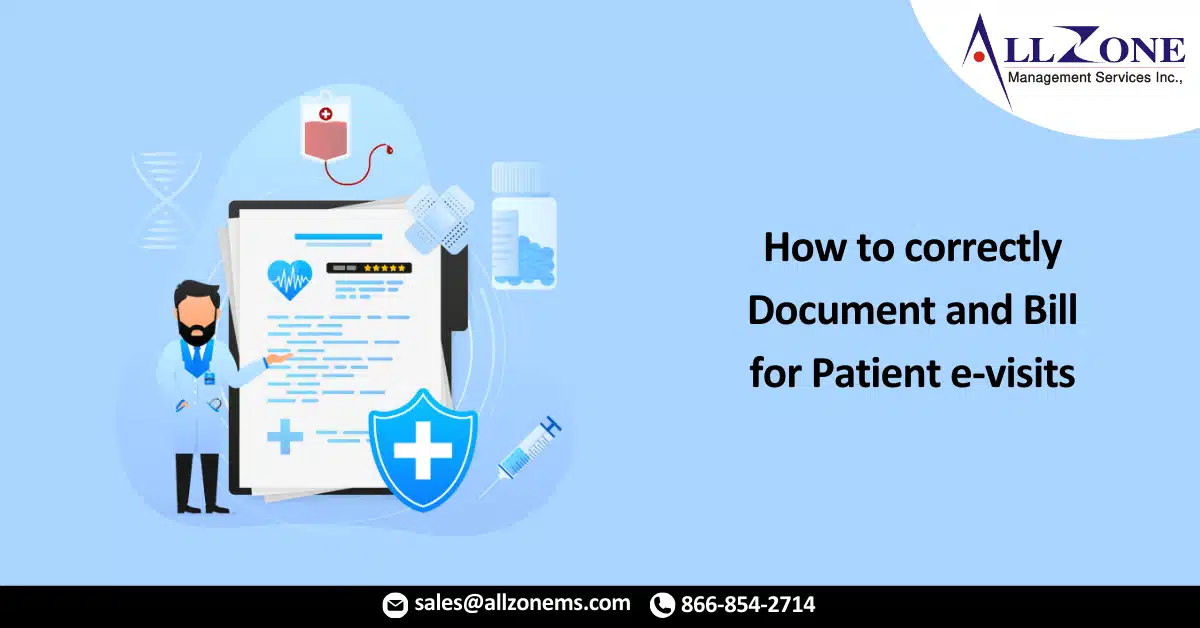Q: The providers in our clinic want to start billing e-visits.Can they bill for all the communication between the provider and patient through our online portal?
A: As you venture into billing e-visits, on-line visits, digital visits – however you’d like to refer to them – let’s review the required elements for these types of services. E-visits are utilized specifically for responding to patient-initiated health concerns and medical questions, and a provider’s management of the patient’s care utilizing communication through a patient portal.While on-line communication is utilized more and more, e-visits should not be utilized for simply disseminating test results, processing medication requests, or scheduling an appointment. An Evaluation and Management service (E/M) needs to be performed in order to bill for the service.
In other words, the provider is making a clinical decision that typically would have been provided in the office (eg, medication dose adjustment, ordering of a test, or prescription of a new medication).
Below are the Do’s and Don’ts of billing these types of visits.
Do
Can bill an E-visit when ALL of the following are met:
A provider is answering a patient-initiated message through the patient portal
Patient consents to the e-visit and understands that s/he might be billed
The patient is established to the provider
Time spent by the provider to respond is >5 minutes
The 2021 E/M guidelines for a visit are met
Clinician hasn’t seen the patient within 7 days
Patient is not in a global period for the same or similar condition
Patient has a new/unrelated problem within seven days of a previous E/M visit when a different problem was addressed
Provider is making a clinical decision that typically would have been provided in the office (eg, medication dose adjustment, ordering of a test, or prescription of a new medication)
The service period for online digital E/M services includes all related work within a 7-day period by the reporting individual and other qualified healthcare providers (QHPs) in the same group practice.The 7-day period begins with the reporting provider’s initial, personal review of the patient-generated inquiry.
Exception: If within 7 days of a previous E/M visit that addressed a different problem, the patient sends an initial online digital inquiry for a new problem, the online digital E/M service may be reported separately.When multiple online E/M services addressing different problems occur within a 7-day period, report the cumulative time of service for all problems addressed.This could mean that your billing department should hold the initial e-visit for seven days to ensure all of the time is captured for that period.
Don’t
Do not bill an E-visit when:
Within the 7-day period of the E-Visit, a separate face-to-face E/M service (either in person or via telehealth) occurs (included in the E/M)
The provider bills for any other separately-reported services (such as care management, INR monitoring, remote monitoring, etc.) during the 7-day period
An E-visit for this patient was billed within past 7 days for the same or similar condition
The provider is simply disseminating test results, processing medication requests, or scheduling an appointment (an E/M service must be performed to bill)
The time includes clinical staff time (only provider time can be included)
The patient inquiry is related to a surgical procedure and occurs within the postoperative (global) period of the procedure
E-visit Codes to know
99421: Online digital evaluation and management service, for an established patient, for up to 7 days, cumulative time during the 7 days; 5-10 minutes
99422: 11-20 minutes
99423: 21 or more minutes
Clinical Examples
99421 – A mother submits an online query through her child’s physician’s electronic health record (EHR) portal about her 6-year-old son who developed an itchy rash two days after an outdoor hike.
Physician time spent: 7 minutes
99422 – A 75-year-old female with chronic obstructive pulmonary disease (COPD) and congestive heart failure (CHF) submits an online query through her physician’s EHR portal about worsening shortness of breath and mild weight gain.
Time spent by physician: 16 minutes
99423 – An adult child of an 80-year-old parent submits through her parent’s physician’s EHR portal an online query about her parent, who has moderate dementia and has become increasingly confused.
Time spent by physician: 30 minutes
The complexity of the patient’s issues would normally determine the time needed to respond.In each of these examples, the provider should document the total time spent performing any of the following activities in response to the patient inquiry:
Review of the initial patient inquiry, medical history, documents sent by the patient and/or obtained by clinical staff and checks online data registries or information exchanges.
- Assess medical condition described in the patient query.
- Formulate and send the provider’s response (eg, a diagnosis and treatment plan and/or request for additional information).
- Review test results and other reports
- Email prescriptions
- Conduct follow-up communication with the patient
- Interact with clinical staff to order diagnostic tests, coordinate care, and implement the care plan
- Complete medical record documentation of all communications
- Provide necessary care coordination, telephonic, or electronic communication assistance
For More Information: how to correctly document and bill for patient e visits

